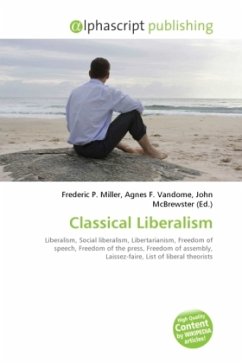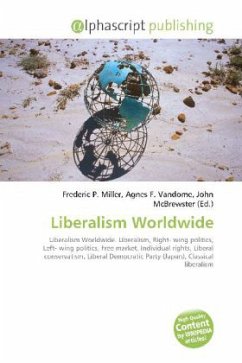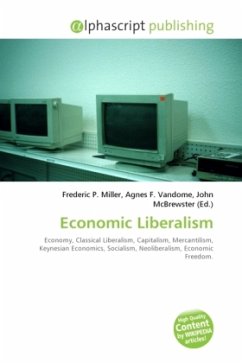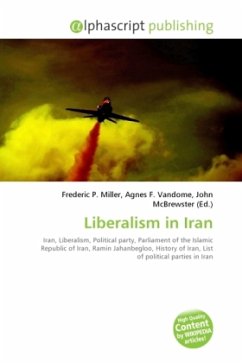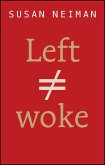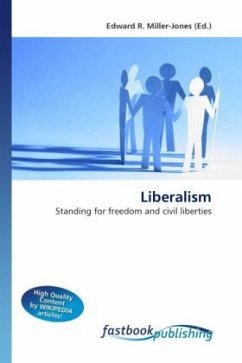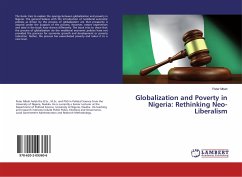Classical liberalism is a political ideology that developed by the middle of the nineteenth century in England, western Europe, and the Americas, which provided a coherent vision of how society should be organized. Central to the classical liberalism of the nineteenth century is a commitment to the liberty of individual citizens. Freedom of religion, freedom of speech, freedom of the press, and freedom of assembly were core commitments of classical liberalism, as was the underlying conception of the proper role of just government as the protection of the liberties of individual citizens. Also central to classical liberalism was a commitment to a system of free markets as the best way to organize economic life. The term classical liberalism is also used to refer to liberal ideology before the twentieth century and to laissez faire or economic liberalism.
Bitte wählen Sie Ihr Anliegen aus.
Rechnungen
Retourenschein anfordern
Bestellstatus
Storno

